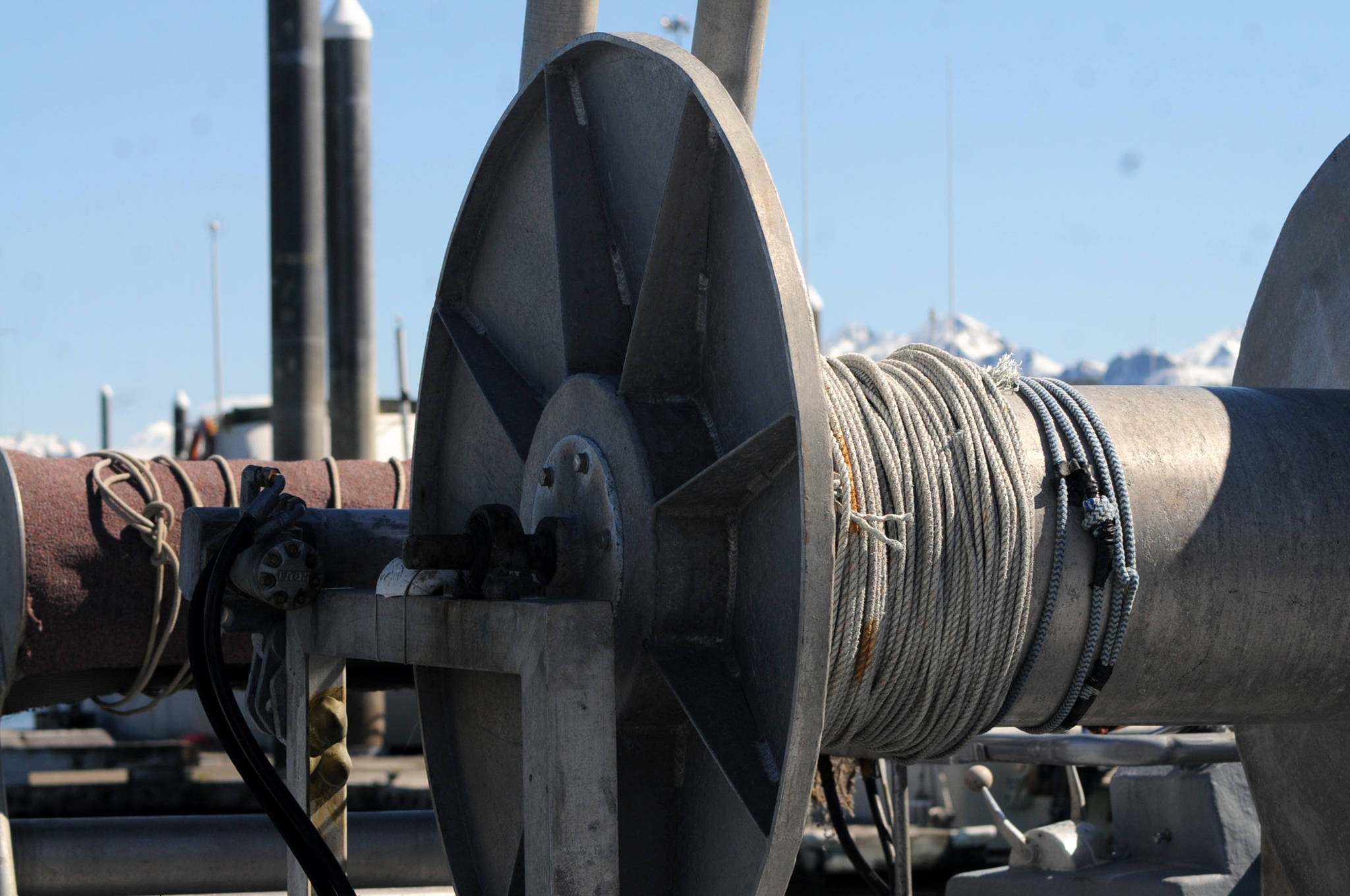A committee of five fishermen, four of whom live on the Kenai Peninsula, will help provide advice to the council that will write a new management plan for Cook Inlet salmon fisheries in federal waters.
North Pacific Fisheries Management Council chairman Dan Hull named Erik Huebsch of Kasilof, Dan Anderson of Homer, Hannah Heimbuch of Homer, Dino Sutherland of Eagle River and Mark Casseri of Kasilof to the council. All five members of the committee are commercial drift gillnet fishermen in Cook Inlet. Three are on the board of the United Cook Inlet Drift Association.
The North Pacific Fishery Management Council, the federal board that regulates fisheries in federal waters in of the North Pacific Ocean, announced the membership of a Cook Inlet Salmon Committee at its June meeting in Kodiak. The committee will provide feedback to the council on the formation of a new plan to manage salmon fisheries in the federal waters of Cook Inlet.
The council passed an amendment to its fishery management plan in 2013 that delegated to the state management of salmon fisheries in federal waters in Cook Inlet, the Copper River area and part of the Alaska Peninsula, but Cook Inlet drift gillnet fishermen objected. The United Cook Inlet Drift Association, which represents the drifters, sued over the decision, and in September 2016, a federal court overturned an earlier court decision in the state’s favor and sided with UCIDA. The council began the process of revising the plan in April 2017.
Hull wrote in an explanation that the initial group focuses on the drift gillnetters as the most affected group.
“The tasking that the (North Pacific Fishery Management Council) has given to the Salmon (fishery management plan) Committee is also primarily focused on measures related to management of the drift gillnet salmon fisheries in (federal waters),” he wrote. “I recognize that these management measures may affect other stakeholder groups and that there is strong interest from a wide range of those groups to join the Salmon FMP Committee. I expect that at a future date the Council could determine, based on the progress of FMP development, that additional tasks for the Committee warrant selection of representatives from other stakeholder groups.”
The council expects a detailed analysis of how to rewrite the fishery management plan amendment in December. That may help identify other stakeholders to add to the committee, Hull wrote.
Sportfishermen, subsistence and personal-use fishermen are not included in the initial board membership. The Kenai River Sportfishing Association objected to the exclusion, saying all the fisheries are tied together in Cook Inlet because the fish returning into the inlet are reaching various watersheds and user groups on those watersheds. In a press release, the group asked Hull to reconsider the decision to exclude other user groups.
The council outlined three primary goals for the committee: to review and provide comments on specific, council-identified issues, to develop options for specific, council-identified needs, and to provide perspectives on potential social and economic impacts of proposed management measures.
Huebsch, who also serves as vice-president of UCIDA, has been involved with the fishery management plan since the council began discussing removing Cook Inlet in 2012. He said the council had put together some guidelines for what the committee will work on, but it is somewhat concerning, as the stakeholders should have some say in what shape the plan takes.
“If we’re stakeholders and we’re the ones affected by these rules, then we need to change the conversation and develop a fishery management plan that works for us,” he said. “The fishery management plan isn’t about what’s convenient for the council.”
Anderson, who also serve on UCIDA’s board, said his main interest in wanting to be on the salmon committee is to help Cook Inlet’s fishery avoid the fate of other major commercial fisheries. He grew up fishing the Lake Michigan commercial fishieres out of Wisconsin and watched as invasive species devastated the fish populations in the lake, all but erasing the commercial fisheries in the area. That’s a fate he doesn’t want for Cook Inlet, he said.
“You have to use you common sense on what can be provided reasonably and sustainably,” he said. “The political (discussion) starts to manage the fish when the fish really need to be managed biologically and not politically. (In the Great Lakes) we didn’t really get to a reasonable level before the invasives come in and it’s gone.”
Commercial fishermen in Cook Inlet have repeatedly disagreed with many of the Alaska Department of Fish and Game’s management decisions, saying the mangers are not meeting the sustainable fisheries management required by the federal Magnuson-Stevents Fisheries Conservation and Management Act.
That was one of the reasons UCIDA cited for suing over the fishery management plan decision, saying the fishermen wanted federal oversight through the Magnuson-Stevens Act for Fish and Game’s salmon management.
The salmon committee will meet for the first time in the fall, pending the selection of a chairman, according to the North Pacific Fishery Management Council’s website.
Reach Elizabeth Earl at eearl@peninsulaclarion.com.



